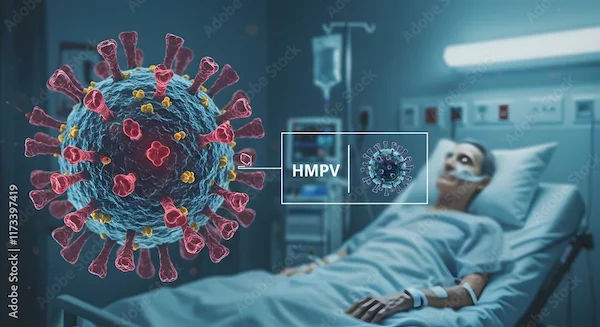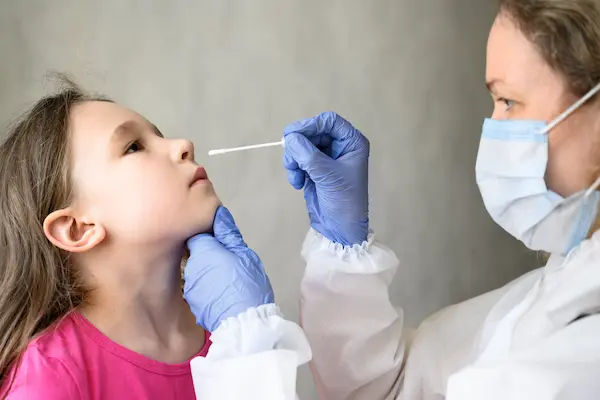Guide to Category/dermatology
Explore comprehensive dermatology tips for healthy skin, hair, and nails. Learn about common conditions, treatments, and daily care routines for lasting wellness.


Introduction
Dermatology is the medical branch dedicated to the health of your body's largest organ: the skin. But it's so much more than just pimples and rashes. This field encompasses a vast universe of conditions affecting the skin, hair, nails, and mucous membranes. From life-threatening diseases like skin cancer to common concerns like acne and aging, dermatology plays a crucial role in our overall well-being and self-confidence. Many people suffer from skin issues for years without seeking professional help, often relying on over-the-counter products that may not address the root cause. This article serves as your comprehensive guide to understanding the world of dermatology. We will explore the different types of skin conditions, from medical to cosmetic, discuss when it's time to consult a specialist, and provide insights into building a foundation of healthy skin habits for life. Whether you're dealing with a persistent rash, concerned about a changing mole, or simply curious about maintaining youthful skin, understanding the principles of dermatology is the first step toward effective care.
What is Dermatology? More Than Skin Deep
At its core, dermatology is a diverse medical specialty with three main branches: medical, surgical, and cosmetic. Medical dermatology deals with the diagnosis and treatment of diseases like eczema, psoriasis, and skin infections. Surgical dermatology involves procedures to remove moles, skin cancers, and other growths. Cosmetic dermatology focuses on enhancing appearance through treatments like Botox, fillers, and laser therapy. A qualified dermatologist is trained in all these areas, making them a one-stop resource for a wide range of concerns.
The Scope of a Dermatologist's Expertise
A dermatologist's expertise is remarkably broad. They treat over 3,000 different conditions. These range from common issues like acne, warts, and fungal infections to complex autoimmune diseases like lupus, which often presents with a characteristic skin rash. They also specialise in pediatric skin conditions like diaper rash and birthmarks, and they are experts in hair and scalp health (trichology), addressing problems like alopecia and severe dandruff. Furthermore, they are on the front lines of detecting skin cancer, the most common form of cancer globally.
When Should You See a Dermatologist? Key Signs
Many minor skin issues can be managed with good basic care. However, certain signs warrant a professional opinion.
You should consider consulting a skin doctor if you experience any of the following:
- A mole that changes in size, shape, or colour (the ABCDEs of melanoma).
- A skin growth that bleeds, itches, or doesn't heal.
- A severe, persistent rash that causes discomfort or spreads.
- Acne that is painful, cystic, or doesn't respond to over-the-counter treatments.
- Significant hair loss or thinning.
- Nail changes like discolouration, pitting, or separation from the nail bed.
If symptoms persist beyond two weeks, consult a doctor online with Apollo24|7 for further evaluation. Early intervention is key, especially for conditions like skin cancer.
Consult a Dermatologist for the best advice
Common Skin Conditions and Their Management
Our skin is constantly exposed to environmental stressors, genetics, and internal health factors, making it susceptible to various conditions. Understanding these is the first step toward effective management.
Acne: Beyond Teenage Years
Often mistakenly thought of as a teenage problem, acne affects millions of adults, particularly women. It occurs when hair follicles become clogged with oil and dead skin cells, leading to pimples, blackheads, and cysts. Hormonal fluctuations, stress, and diet can be significant triggers. While over-the-counter salicylic acid or benzoyl peroxide can help mild cases, moderate to severe acne often requires prescription treatments like topical retinoids, antibiotics, or oral medications like isotretinoin. If your condition does not improve after trying these methods, book a physical visit to a doctor with Apollo24|7 to get a personalised treatment plan that addresses the root cause.
Eczema and Psoriasis: Managing Chronic Inflammation
Eczema (atopic dermatitis) and psoriasis are often confused because both cause red, inflamed skin. However, they are distinct. Eczema typically presents as intensely itchy, dry patches in the creases of elbows or knees and is linked to allergies and asthma. Psoriasis, an autoimmune condition, appears as thick, red patches with silvery scales, often on elbows, knees, and the scalp. Management for both focuses on controlling inflammation and moisturising. This can include topical corticosteroids, phototherapy (light treatment), and systemic medications for more severe cases.
Skin Cancer: Awareness and Early Detection
Skin cancer is the most common cancer, but also one of the most preventable and treatable when caught early. The three main types are basal cell carcinoma (most common, least dangerous), squamous cell carcinoma, and melanoma (the most aggressive). The key to early signs of skin cancer on face and body detection is knowing the ABCDEs: Asymmetry, Border irregularity, Colour variation, Diameter larger than a pencil eraser, and Evolution (change over time). Regular self-exams and annual check-ups with a dermatologist for a full-body skin exam are crucial, especially for those with fair skin, a history of sunburns, or a family history of skin cancer.
The World of Cosmetic Dermatology
Cosmetic dermatology focuses on improving the aesthetic appearance of the skin. These procedures have become increasingly popular and accessible.
Anti-Aging Treatments: From Creams to Procedures
The quest for youthful skin drives a massive industry. Effective cosmetic procedures for acne scars and aging include:
- Topical Creams: Prescription-strength retinoids are the gold standard for stimulating collagen and reducing fine lines.
- Botox: Injections that relax muscles to smooth dynamic wrinkles like crow's feet and frown lines.
- Dermal Fillers: Injectables like hyaluronic acid that restore volume to areas like the cheeks and lips.
- Chemical Peels & Microdermabrasion: Procedures that exfoliate the top layers of skin to improve texture and tone.
Laser Treatments for Hair and Pigmentation
Lasers are incredibly versatile tools. They are commonly used for laser hair removal to reduce unwanted hair permanently. They are also highly effective at targeting pigmentation issues like sun spots, age spots, and melasma by breaking down melanin clusters in the skin. Fractional lasers can also resurface the skin, improving texture and reducing the appearance of scars.
Hair and Scalp Health (Trichology)
The health of your hair is a direct reflection of your scalp's condition and your overall health.
Understanding Hair Loss: Causes and Solutions
Causes of hair loss in women and men can be multifaceted. Common types include:
- Androgenetic Alopecia (Pattern Hair Loss): A genetic and hormonal condition.
- Telogen Effluvium: Temporary shedding often triggered by stress, illness, or childbirth.
- Alopecia Areata: An autoimmune condition causing patchy hair loss.
Treatments range from topical minoxidil and oral finasteride to platelet-rich plasma (PRP) therapy and hair transplants, depending on the diagnosis.
Dandruff and Scalp Psoriasis
While common dandruff is often managed with anti-fungal shampoos, how to treat severe dandruff or a persistent, scaly
scalp may require a dermatologist's diagnosis to rule out conditions like scalp psoriasis or seborrheic dermatitis, which
may need medicated shampoos or topical steroids.
Nail Disorders: What Your Nails Can Tell You
Your nails can be a window to your health. Brittle nails, discolouration (like yellow or green), pitting, or ridges can indicate various issues, from fungal infections (symptoms of nail fungus) to nutritional deficiencies or underlying systemic diseases like psoriasis. A dermatologist can diagnose and treat these conditions effectively.
Daily Skin Care: The Foundation of Dermatological Health
The best dermatological treatment is prevention. A consistent, gentle skincare routine is the cornerstone of healthy skin.
The Essential Pillars: Cleansing, Moisturising, and Sun Protection
A healthy skincare routine is built on three essential pillars:
- Cleansing: Use a gentle, pH-balanced cleanser twice daily to remove dirt, oil, and impurities without stripping the skin's
natural barrier. - Moisturising: A good moisturiser helps maintain the skin's hydration and protects its barrier function. Look for
ingredients like ceramides and hyaluronic acid. - Sun Protection: This is non-negotiable. Daily use of a broad-spectrum sunscreen with an SPF of 30 or higher is the
single most effective way to prevent skin cancer and photoaging (wrinkles and sun spots).
Conclusion
Navigating the world of dermatology can seem complex, but understanding its scope empowers you to take charge of your skin, hair, and nail health. From life-saving early detection of skin cancer to managing chronic conditions like psoriasis and enhancing your natural features through cosmetic procedures, dermatology offers solutions for a wide spectrum of needs. Remember that your skin is a dynamic organ, and its needs can change with age, season, and health status. Building a relationship with a trusted dermatologist ensures you have expert guidance for whatever concerns may arise. Start with the basics—gentle cleansing, diligent moisturising, and faithful sun protection—and don't hesitate to seek professional help for issues that disrupt your life or cause concern. Your skin's health is an integral part of your overall well-being, and investing in it is one of the most important commitments you can make to yourself.
Consult a Dermatologist for the best advice
Consult a Dermatologist for the best advice

Dr. Sushil Singh
Dermatologist
6 Years • MBBS, MD Dermatology, Venerology & Leprosy
Kolkata
MCR SUPER SPECIALITY POLY CLINIC & PATHOLOGY, Kolkata

Dr. Sree Lalitha V
Dermatologist
9 Years • MBBS, DDVL , FRGUHS , Fellowship in Cosmetology. Fellowship in Dermatosugery - national skin centre ,Singapore. University medal holder in postgraduation and national scholarship in IADVL dermacon 2017
Bengaluru
Apollo Medical Center, Marathahalli, Bengaluru

Dr. Priyankar Misra
Dermatologist
11 Years • MBBS, MD Dermatology , Venereology & Leprosy
Kolkata
MCR SUPER SPECIALITY POLY CLINIC & PATHOLOGY, Kolkata

Dr. Kaushiki Hajra
Dermatologist
5 Years • MBBS, MD Dermatology, Venerology & Leprosy
Kolkata
MCR SUPER SPECIALITY POLY CLINIC & PATHOLOGY, Kolkata

Dr. Sonal Jain
Dermatologist
9 Years • MBBS, MD Dermatology, Venerology & Leprosy
Kolkata
MCR SUPER SPECIALITY POLY CLINIC & PATHOLOGY, Kolkata
(25+ Patients)
Consult a Dermatologist for the best advice

Dr. Sushil Singh
Dermatologist
6 Years • MBBS, MD Dermatology, Venerology & Leprosy
Kolkata
MCR SUPER SPECIALITY POLY CLINIC & PATHOLOGY, Kolkata

Dr. Sree Lalitha V
Dermatologist
9 Years • MBBS, DDVL , FRGUHS , Fellowship in Cosmetology. Fellowship in Dermatosugery - national skin centre ,Singapore. University medal holder in postgraduation and national scholarship in IADVL dermacon 2017
Bengaluru
Apollo Medical Center, Marathahalli, Bengaluru

Dr. Priyankar Misra
Dermatologist
11 Years • MBBS, MD Dermatology , Venereology & Leprosy
Kolkata
MCR SUPER SPECIALITY POLY CLINIC & PATHOLOGY, Kolkata

Dr. Kaushiki Hajra
Dermatologist
5 Years • MBBS, MD Dermatology, Venerology & Leprosy
Kolkata
MCR SUPER SPECIALITY POLY CLINIC & PATHOLOGY, Kolkata

Dr. Sonal Jain
Dermatologist
9 Years • MBBS, MD Dermatology, Venerology & Leprosy
Kolkata
MCR SUPER SPECIALITY POLY CLINIC & PATHOLOGY, Kolkata
(25+ Patients)
More articles from General Medical Consultation
Frequently Asked Questions
1. What's the difference between a dermatologist and a cosmetologist?
A dermatologist is a medically trained doctor (MBBS, MD) who diagnoses and treats diseases. A cosmetologist is a beauty technician trained in treatments like facials and makeup. For any medical skin issue, always consult a dermatologist.
2. How often should I get a skin check-up?
It's generally recommended that adults, especially those with risk factors (fair skin, family history, many moles), have a full-body skin exam by a dermatologist once a year.
3. Are cosmetic dermatology procedures safe?
When performed by a qualified and experienced dermatologist, cosmetic procedures are generally very safe. The key is to have a thorough consultation to discuss your goals, potential risks, and realistic outcomes.
4. Can diet really affect my skin?
Yes. While not the primary cause for all conditions, diet can significantly influence skin health. Diets high in sugar and dairy may exacerbate acne for some people. A balanced diet rich in antioxidants, vitamins, and healthy fats generally promotes healthier skin.
5. What is the best treatment for dark spots?
The 'best' treatment depends on the cause (sun damage, acne scars, melasma). A dermatologist might recommend a combination of topical agents (like vitamin C, retinoids, hydroquinone), chemical peels, or laser treatments for optimal results.




